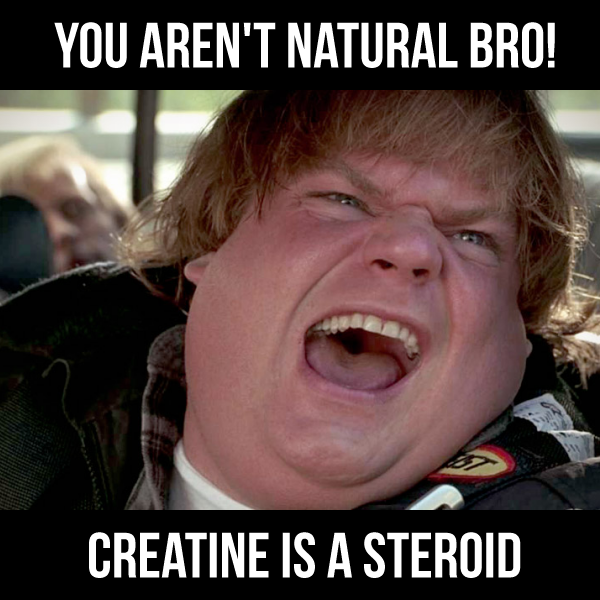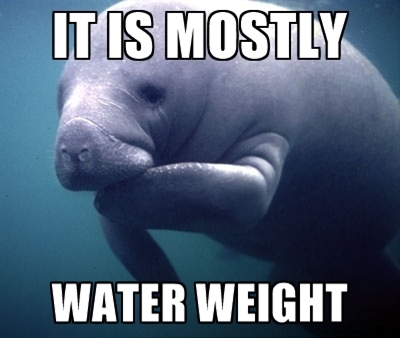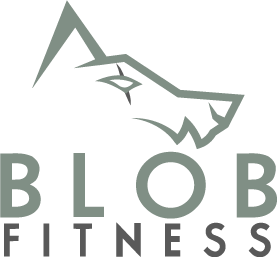
Creatine is supplement that is a bit mystic to most people. You’ll see someone look at another person who’s built and say something like “Wow that’s all creatine, bro,”almost as if it was a steroid. I’ve had people tell me they want to be “natural” and they think that taking creatine would make them “unnatural,” which is not true. Let’s go a bit deeper into what creatine is, and if it can help you see better results!

WHAT IS CREATINE?
Creatine is “an amino acid, that is a constituent of the muscles of vertebrates and is phosphorylated to store energy used for muscular contraction”. Basically, creatine allows your muscles to produce more energy. This allows you to be able to lift heavier weights and perform high intensity workouts quicker. Even though we know of creatine as a supplement, creatine is formed naturally in your body as well. It helps regenerate adenosine triphosphate or known as ATP. ATP is your body’s source of energy. To simply things, when ATP is used or gets “split off” it turns into ADP. ADP can be regenerated into ATP again though. When you take creatine, it helps ADP recycle to ATP[1]. Dr. Layne Norton has a great article explaining this process in more depth.
CREATINE BENEFITS
MUSCLE GROWTH AND STRENGTH GAINS
From the above section, we know that creatine will give us more energy and allow us to work out longer and lift heavier. Creatine will improve strength and hypertrophy when performing weight training[2].
Even from my own personal experience, once I start cycling on creatine my workouts take a noticeable shift. They’re more intense and I can push out a lot more than usual. My body usually has more of a “pump” to it as well. If you haven’t used creatine before, you’ll most likely experience noticeable benefits in strength and muscle mass fairly quickly.
IS IT SAFE?
Even though creatine sounds harmful, it’s actually a safe supplement to take! It has been shown through studies not to have any negative effects [3]. However, like anything else, if you take more than the recommended dose of it, it can lead to complications.
WHEN IS THE BEST TIME TO TAKE IT?
BEFORE OR AFTER WORKOUT?
There tends to be a bit of debate on when the best time to take creatine is. Some people say the best time to take it is before their workout because it provides more energy. Other people say that they like to take it after their workouts to help ensure recovery. It’s been shown though, that taking it after your workout may be more beneficial, there isn’t a significant change in body weight and fat. One study found the benefits of post-workout creatine to be fat-free mass, 1RM for bench press, and fat mass.[4]
BULKING OR CUTTING?
One of the main side effects of creatine is increased retention of water weight. So if you’re bulking and start taking creatine, you’ll most likely gain an extra 4-5 pounds of water weight easily. It will also help with your overall goal of getting stronger and muscular gains.
If you were cutting and going into a competition, I personally wouldn’t recommend taking it because, like I said above, you’ll have an extra 4-5 pounds of water weight on you and you’ll not only be a bit more bloated, but you’ll look it too. However, if you can cut down the water weight and cycle off (stop taking the supplement for about 2-4 weeks) of creatine, then it doesn’t hurt. You’ll most likely have an easier time of retaining strength and mass.

FINAL THOUGHTS
Creatine is a great supplement to take that can help you achieve success in your journey. If you’re bulking, I highly recommend taking it, and if you’re cutting then I would say you can take it as long as you don’t have a contest coming up. Personally I use the optimum nutrition creatine and it’s worked great for me! I do want to state though, before you start taking any supplement you should talk to your doctor first to make sure it is okay for you to be taking it.
REFERENCES
- The Editors of Encyclopedia Britannica. (2016, August 19). Adenosine triphosphate. Retrieved January 20, 2018, from https://www.britannica.com/science/adenosine-triphosphate
- Wang C-C, Lin S-C, Hsu S-C, Yang M-T, Chan K-H. Effects of Creatine Supplementation on Muscle Strength and Optimal Individual Post-Activation Potentiation Time of the Upper Body in Canoeists. Nutrients. 2017;9(11):1169. doi:10.3390/nu9111169.
- Hall, M., & Trojian, T. H. (n.d.). Creatine supplementation. Retrieved January 20, 2018, from https://www.ncbi.nlm.nih.gov/pubmed/23851411
- Antonio J, Ciccone V. The effects of pre versus post workout supplementation of creatine monohydrate on body composition and strength. Journal of the International Society of Sports Nutrition. 2013;10:36. doi:10.1186/1550-2783-10-36.
Get a Free Guide!
Similar Posts
This article on dieting myths debunked will help you understand the main myths to avoid for clarity on your dieting journey.
This article discusses the importance and how to create a nutrient dense diet, rich in vitamins, minerals, and antioxidants, boosts health and vitality.
Explore the crucial interplay of Vitamin D3, Magnesium, and K2 for optimal health, and learn how these nutrients enhance bone, heart, and immune health.



